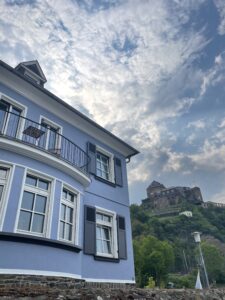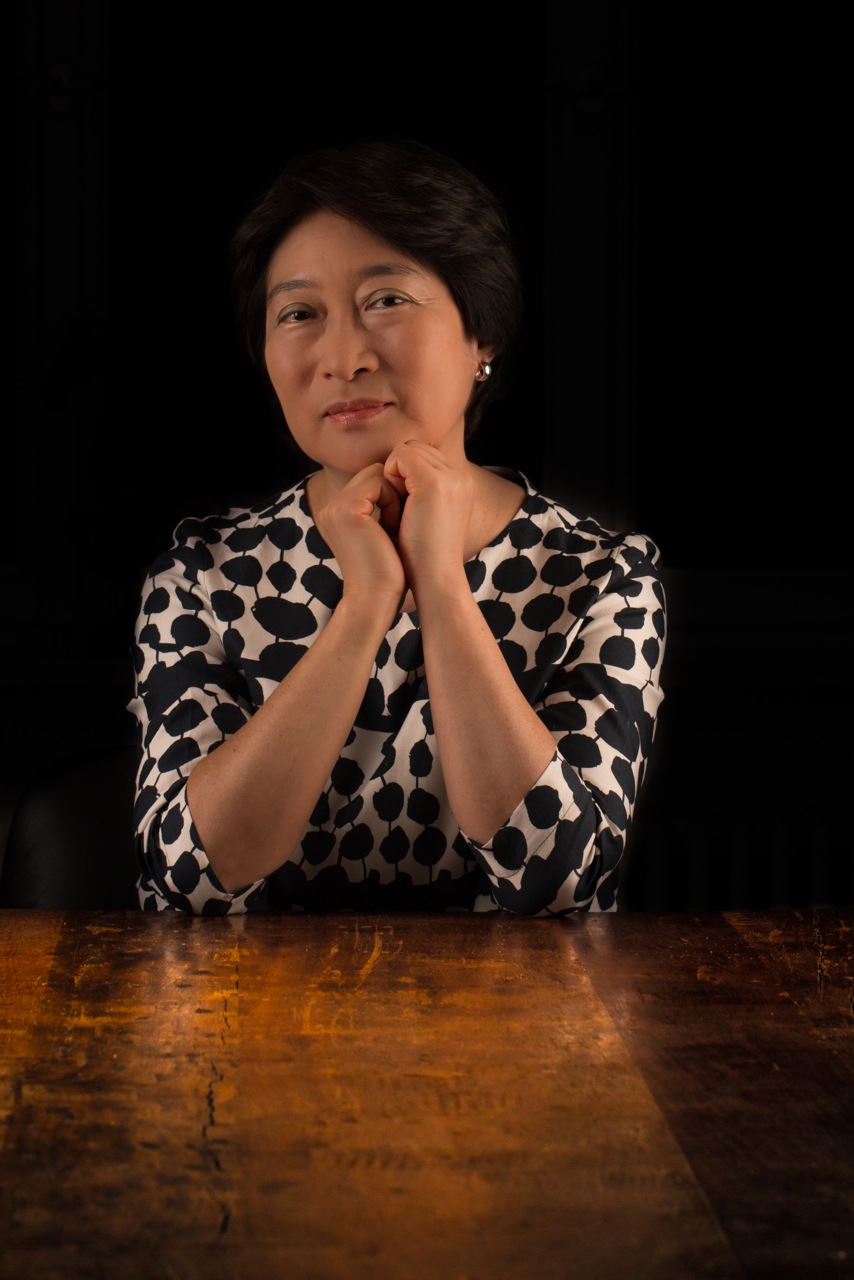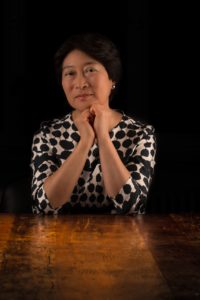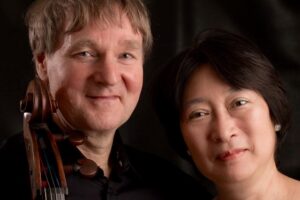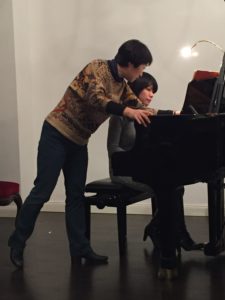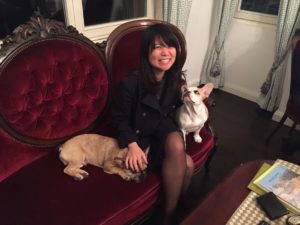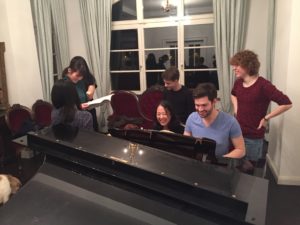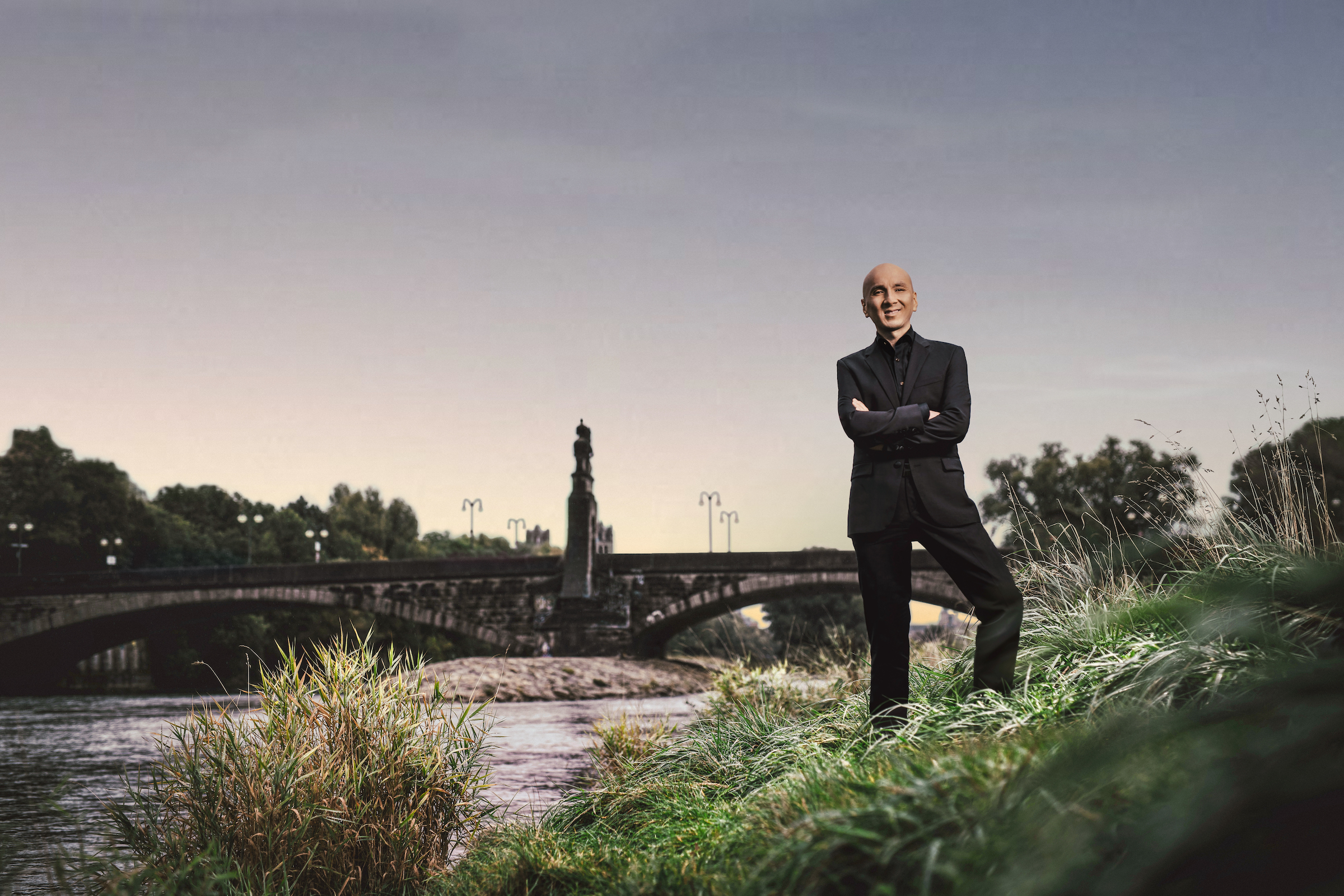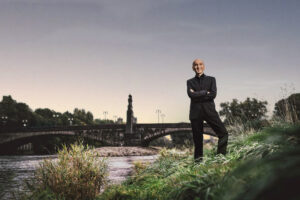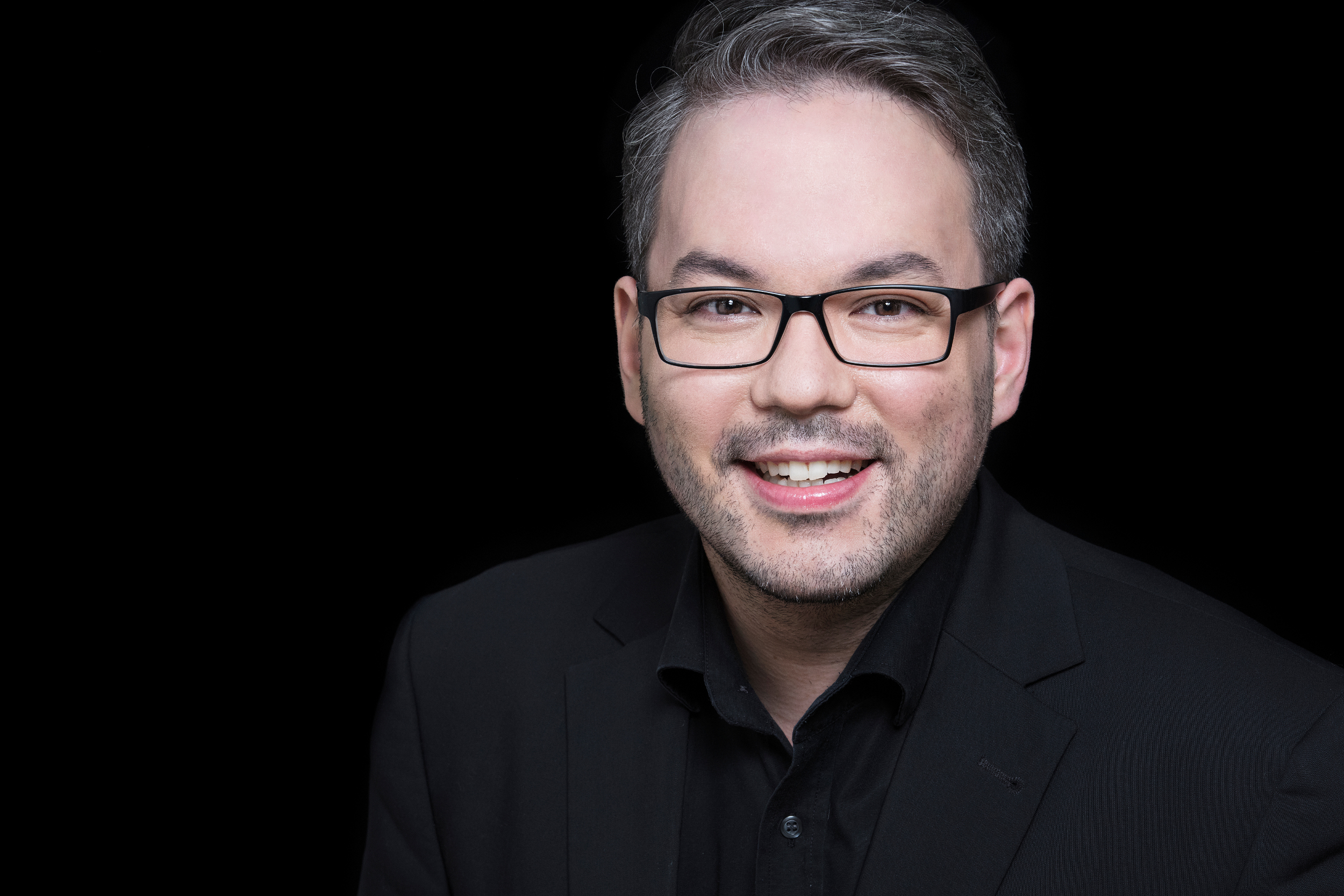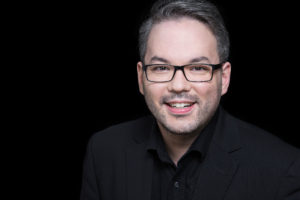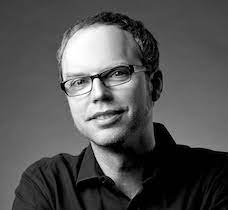
Teacher:
 Hendrik Bräunlich, was born in Leipzig. Prof. Bräunlich’s pianistic talent, as well as his general involvement in music have been nurtured since early childhood.
Hendrik Bräunlich, was born in Leipzig. Prof. Bräunlich’s pianistic talent, as well as his general involvement in music have been nurtured since early childhood.
From 1986 to 1992 he studied at the Hochschule für Musik und Theater (Music Conservatory) “Felix Mendelssohn Bertholdy” in Leipzig with emphasis on vocal accompaniment, piano solo and instrumental accompaniment. There, under the tutelage of Maestro Eugen Wangler, he developed a love for the singing voice, and a passion for accompanying it.
From 1992 to 1997 he studied song interpretation in the postgraduate program at the same conservatory with Lied professor and mentor Prof. Karl-Peter Kammerlander, During this same period he was given the opportunity to work privately with Charles Spencer, with whom he studied most extensively, and Prof. Hartmut Höll – both great lied interpreters. In addition, he accompanied master classes of well-known singers such as Elisabeth Schwarzkopf, Dietrich Fischer-Dieskau, Peter Schreier, Thomas Hampson and Jakob Stämpfli. Mr. Stämpli, impressed with his work, invited him to accompany a master class in Sion (Suisse) during the Tibor Varga Festival.
Prof. Bräunlich’s success at the Varga Festival as well as his association with other famous artists led to additional invitations to accompany international singing competitions such as the Schumann in Zwickau and the Bach in Leipzig. Charles Spencer used his influence to introduce Mr. Bräunlich to world-renowned mezzo-soprano, Christa Ludwig, with whom he became associated for many years – accompanying her master classes in Gumpoldskirchen near Vienna, Wiener Musikverein, Villecroze in France and a national conference of German-speaking singing teachers in Halle/Saale,) to name a few.
Prof. Bräunlich’s accompanying skills were indeed also acknowledged by the fact that he himself became a prize-winner: in 1993 he won the Felix Mendelssohn-Bartholdy Prize in Berlin, and in the same year, the accompanying prize at the International Singing Competition in Tauberbischofsheim. In 1994 he received an award at the International Brahms Singing Competition in Hamburg, and in the 1997 Deutscher Musikwettbewerb awarded him a scholarship. In 1998 he was prize-winner at the first International Hilde Zadek Singing Competition in Passau.
The attention generated by these German music competitions enabled Prof. Bräunlich to start a concert career. It also resulted in repeated invitations to accompany the above-mentioned competitions and master classes.
Prof. Bräunlich has recorded for all major German broadcasters. He has also participated in various CD projects, including the first recording of Lieder by Georg Göhler. Other CD recordings include “Hausmusik bei Schumanns” with the Calmus Vocal Ensemble Leipzig, and the award-winning CD of the clarinetist Nicola Jürgensen.
In 1992 Prof. Bräunlich was offered a permanent full-time teaching position at the Leipzig Conservatory; the association with this institution continues to this day. The pedagogical commitment he has to his students, and his support of their individual development is obviously enriched by his personal history of performing and accompanying.
In 2005, under the auspices of the ERASMUS exchange program, he was invited – together with Leipzig Conservatory Voice Prof. Dr. Jeanette Favaro-Reuter – to participate in coaching Lieder of Felix Mendelssohn Bartholdy at the Royal College of Music in London. During this period he also tought during the Leipzig Summer Courses of Puccini’s “Tosca” as well as master classes of clarinettist Allan Key and Prof. Dr. Favaro-Reuter.
Over the last years Prof. Bräunlich has offered classes, free of charge, at the Leipzig Conservatory with primary emphasis on Piano Lied literature of the 20th and 21st centuries. He has offered addition classes on topics such as “Robert Schumann´s Lieder” and “Claude Debussy´s Lieder and Chants”.
His involvement with 20th and 21st century Lied has led Prof. Bräunlich to an even greater concentration on contemporary music. In 2022, together with soprano Lisa Fornhammar, he developed a special New Music Program. The theme for the 2023/24 session is “New Music is not per se dissonant”.
Dates:
Arrival: Thursday, July 20, 2023, until 2 pm
Closing concert: Sunday, July 23, 2023, 5 pm
Departure: Monday, July 24, 2023, after 2 pm
Course Description:
Dieser Kurs möchte nach Möglichkeit mit Duos arbeiten. Diese können wir auch gemeinsam zusammenstellen. Wobei es nicht darauf ankommt, ob jede teilnehmende Person nur mit einer anderen Person zusammenarbeitet. Es können gerade die Pianistinnen. zw. Pianisten auch mit mehreren Gesangspartnerinnen bzw. -partnern zusammen musizieren.
So habe ich es selbst bei Wettbewerben während der Runden mit einigen Teilnehmenden zu tun gehabt, was meine Qualität nicht minderte. Meine Idee ist folgende: Jeder teilnehmende Person sucht sich eine bis zwei Liedgruppen aus und bereitet diese vor. Dann können wir während der Kurstage an den Liedern arbeiten und das Erarbeitete zum Schluss in einem Abschlusskonzert vorstellen.
Dies setzt voraus, dass jeder seine Stücke handwerklich gut parat hat, um damit arbeiten zu können. Die Programmfolge des Konzertes sollte dann auch der meiner Ankündigung entsprechen.
Repertoire: Neue Musik ist nicht per se dissonant
Ich habe ein Programm zusammengestellt, welches den tonalen Aspekt der Stücke in den Mittelpunkt rückt. Denn wir sind es gewohnt, nach atonalen Klängen meist eine Auflösung in Form einer Konsonanz zu erwarten. Und diese gibt es in erstaunlich vielen Liedern der Neuen Musik.
Das Programm beginnt mit drei Liedern aus den „Walzergesängen, Op. 6“ von Alexander von Zemlinsky. Diese sind, wie er selbst äußerte, nicht modern, sondern im Spätromantischen verwurzelt.
Nr. 1 Liebe Schwalbe
Nr. 5 Blaues Sternlein
Nr. 6 Briefchen schrieb ich
Danach zwei Brettl-Lieder des Entdeckers der Dodekaphonie, Arnold Schönberg. Diese insgesamt acht Lieder (zwischen April und September 1901 komponiert) gehen auf sein Engagement als Leiter de Berliner Cabaretts Überbrettl zurück.
Zwei davon habe ich ausgewählt: Gigerlette und Arie aus dem Spiegel von Arkadien
Darauf folgen die vielleicht berühmtesten Schüler, nämlich Anton von Webern und Alban Berg. Zuerst Webern. Er kommt, wie auch sein Lehrer und sein Mitschüler Berg, aus der Tradition der Wiener Spätromantik. Nur in wenigen Klängen meint man das Kommende zu hören, eher zu ahnen, die musikalische Struktur steht noch ganz im Zeichen der Tradition: Vorfrühling, Blumengruss, Fromm und Heiter
Dann Alban Berg, dem Romantiker der Zweiten Wiener Schule. Von ihm habe ich die quasi nicht explizit „Neuen Lieder“ ausgewählt, nämlich aus den “Sieben frühen Liedern: Die Nachtigall und Im Zimmer.
Der „zweiten Wiener Schule“ folgt ein anderer österreichischer Komponist, Gottfried von Einem. Von ihm habe ich ein Lied gewählt aus seinen „Zwölf Tag- und Nachtliedern“. Das Stück „Eine Treppe abwärts steigend“ zeigt seine Individualität gut und vermittelt trotzdem nicht das Quere der Neuen Musik.
Nach dem ersten Teil mit ausschließlich deutschsprachigen Tonsetzern gibt es einen zweiten Teil mit amerikanischen Komponisten. Diese haben sich , vor allem nach dem zweiten Weltkrieg, eine guten Ruf gemacht im ansonsten eher prüden Amerika: Zuerst ein Komponist mit sizilianischen Wurzeln, Dominick Argento. Er fühte sich zeitlebens zur Musik George Gershwins und zur amerikanischen Vokalmusik hingezogen. Von ihm habe ich aus seinem Zyklus “Six Elizabethan Songs” folgende ausgesucht: Diaphenia und Hymn
Ihm folgt ein eher sich der leichteren Klassik verpflichtender Musiker, Marc Blitzstein. Er komponierte häufig für den Film und so habe ich gedacht, diese besondere Farbe mit ins Programm zu nehmen. Der Song „I wish it so“ steht ganz in der Linie der für den Film geschaffenen Titel. Nach Blitzstein folgt ein unter anderem mit dem Pulitzer-Preis ausgezeichneten Samuel Barber ein weiterer Amerikaner. Er war nicht nur Komponist, sondern auch Bariton. Und vielleicht hat er deshalb seine Lieder so eingänhig komponiert.
Zuerst „Sure of this shining night“, dann das wesentlich düsterere „The Crucifiction“. Zum Schluss noch ein weiterer sehr wichtiger und bedeutender amerikanischer Komponist, Leonard Bernstein.
Dieser, aus jüdischer Familie stammend, war ein extrem erfolgreicher Musikvermittler. Und als Komponist ist uns allen wahrscheinlich seine „West Side Story“ bekannt, einer Musical-Oper. Aber er hat auch Lieder vertont, unter anderem den Zyklus „I hate music“. Und aus diesem habe ich den namensgebenden Titelsong ausgewählt.
Accommodation:
Students are hosted on a shared room basis in a beautiful villa on the bank of the Rhine river.
Meals:
A kitchen is available for cooking; groceries can be bought in a nearby supermarket. Group shopping is advised. A different team can do the cooking daily, which can be organize in situ.
Rooms:
Committed to the spirit of romanticism, all masterclasses offered by the Sankt Goar International Music Festival and Academy unite everything under one roof: living, learning, eating and sleeping. That is why participants will be hosted on a shared room basis.
Audition information and registration:
In order to be accepted, you must meet one of the following criteria:
(a) be recommended by Prof. Bräunlich, or
(b) submit an unedited video audition (YouTube link) for review.
In addition, you must complete and submit our application form and pay a €40,- application fee.
Registration Deadline: July 1st, 2023
Tuition:
Course fee (incl. accommodation):
Per Participant: €450,-
As Duo: €800,-



